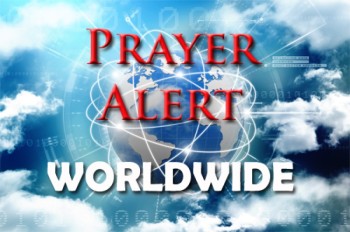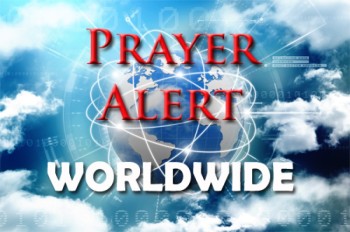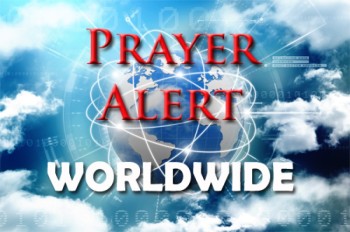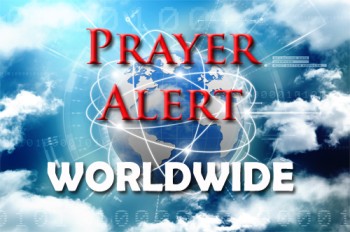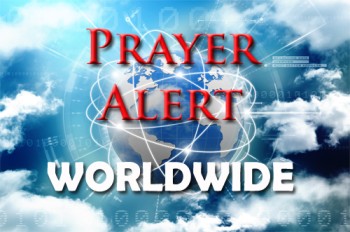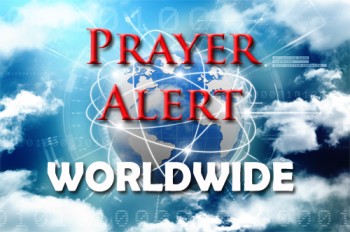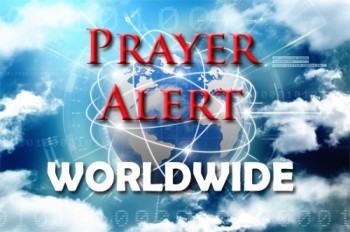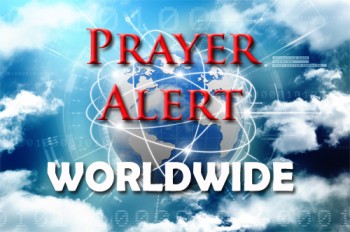Displaying items by tag: Worldwide
Trump says Putin talks 'don't go anywhere' as he imposes new sanctions
US President Donald Trump has imposed sweeping new sanctions on Russia’s two largest oil companies, Rosneft and Lukoil, after shelving plans for peace talks with Vladimir Putin. The move marks a major policy shift, as Trump had previously resisted sanctions while urging Europe to end purchases of Russian oil. Frustrated by Moscow’s failure to negotiate, he said his conversations with Putin “don’t go anywhere,” calling the sanctions “tremendous” and expressing hope they could be lifted if Russia agrees to halt its war in Ukraine. Treasury Secretary Scott Bessent said the measures target the Kremlin’s “war machine,” which is heavily funded by oil exports. Ukrainian President Volodymyr Zelensky welcomed the action as a “good signal,” urging continued global pressure. The sanctions follow similar steps by the UK and EU, which also banned Russian liquefied gas imports by 2028. Despite economic pressure, Russia insists it remains “immune” and continues airstrikes across Ukraine, where civilian casualties—including children—remain high.
Collision involving multiple vehicles on Uganda highway kills 46 people
At least 46 people have died following a devastating collision on Uganda’s Kampala-Gulu Highway, one of the country’s busiest roads. The crash occurred shortly after midnight near Kiryandongo when two buses travelling in opposite directions attempted to overtake other vehicles simultaneously, colliding head-on with a truck and a car. Initial reports suggested a higher death toll of 63 before police revised the figures as rescue operations progressed. The Uganda Police Force said many victims were found unconscious at the scene and urged motorists to avoid dangerous overtaking, which remains one of Uganda’s leading causes of road fatalities. Red Cross spokesperson Irene Nakasiita described the wreckage as “too gruesome to share,” with many victims suffering severe injuries and broken limbs. The tragedy highlights Uganda’s worsening road safety record, with more than 5,000 people killed in crashes last year—a rise for the third consecutive year. Authorities have launched an investigation while emergency teams continue assisting survivors and families.
Peru declares 30-day state of emergency in Lima to tackle rising crime
Peruvian President Jose Jeri has declared a 30-day state of emergency in the capital, Lima, and the neighboring province of Callao to confront rising crime and growing public unrest. The measure, approved by the Council of Ministers, allows the armed forces to work alongside police in maintaining order and security. In a televised address, Jeri said the government was “moving from defense to offense in the fight against crime” to restore peace and public trust. The decision follows violent protests last week that left one person dead and over 100 injured, marking the first major challenge to Jeri’s new administration. Sworn in earlier this month after the ouster of Dina Boluarte, the president has made law and order his top priority. However, analysts warn that repeated emergency declarations — including similar measures under Boluarte — have failed to address the root causes of Peru’s insecurity. Critics say lasting reform requires judicial and police accountability, not just military deployment.
1,600+ Christians killed for their faith since 2000
A Vatican-led commission has confirmed that more than 1,600 Christians have been killed for their faith since the year 2000. The project, initiated by Pope Francis and supported by Aid to the Church in Need (ACN), draws on verified testimonies to highlight persecution across denominations. ACN’s John Newton described how believers worldwide face discrimination, harassment, abductions, and killings. He cited the 2015 martyrdom of 21 Egyptian construction workers, as well as this year’s massacre of 200 Christians in Nigeria where families were displaced, homes burnt, and victims slaughtered. 'These tragedies are underreported,' Newton said, stressing that such violence rarely makes global headlines. The commission acknowledges the true death toll may be even higher. Yet Pope Leo XIV urges Christians to find hope in the faithfulness of martyrs, whose witness testifies to the gospel’s unstoppable power and the ultimate triumph of good over evil. Their sacrifice continues to inspire courage and strengthen the global Church.
Peace index lists Ukraine, Russia last: see who is first
The 2025 Global Peace Index (GPI), published by Australia’s Institute of Economics and Peace, has ranked Iceland as the world’s most peaceful nation, while Russia and Ukraine occupy the lowest positions due to ongoing conflict. Assessing 163 countries using indicators such as societal safety, security, and militarisation, the report reveals global peacefulness has declined for the sixth consecutive year, falling by an average of 0.36%. The USA ranks 128th, trailing nations like Bangladesh and Honduras, and both it and Israel placed lowest in the militarisation domain. The report highlights growing geopolitical tensions, the breakdown of traditional alliances, and a record 59 active state-based conflicts - the most since World War II. Nonetheless, some positive trends emerged, including declining homicide rates and fewer violent demonstrations in parts of Central and North America. The rankings signal widespread concern for peace and security worldwide.
Australia: World Prayer Assembly
Churches and prayer and mission ministries across Australia, New Zealand and the Pacific Islands are planning to come together in Perth from 3 to 6 October, in unprecedented unity that has not been seen for decades, with the vision ‘A New Wave of Glory to cover the earth, as the waters cover the sea’ (Habakkuk 2:14). We are invited to attend, to pray, to watch online, and / or to give. For those who are unable to travel there will be livestreams of the plenary sessions. More information, including how to donate to this vision, from the website.
Global: International Day of Prayer for the Persecuted
The International Day of Prayer for the Persecuted (IDOP) is Sunday, November 6. It is observed every year around All Saints’ Day when the Church traditionally remembers the saints of the Church, many of whom suffered torture and martyrdom for Jesus. IDOP recognizes those who have paid the ultimate price for their faith in Christ and reminds us that many are still paying that price today. This is a special time for us to pray for those who are persevering in the face of hardship, letting them know they are not forgotten and we are praying for them. Prayer Alert intercessors are invited to be a part of this special day by scheduling a few minutes to pray for Afghans, Ukrainians and the many others now arriving into new countries, and those still waiting to re-settle. For most Ukrainian’s this will be seen as a temporary re-settlement. Pray for converts to Christianity in the Muslim world, who have been threatened and abandoned by their families because of their faith in Jesus Christ.
A race for diversity in coronavirus vaccine trials
In the frantic race for a Covid-19 vaccine, one issue in clinical trials is the lack of diversity. Experts are saying that the long history of abusive research practices has left many people of colour distrustful of the medical establishment, making it difficult to recruit them for clinical trials. Since black people are dying of Covid-19 at almost 2.5 times the rate of whites, recruiting a balanced cohort is essential. Pray for extra community outreach, childcare and transportation to testing and trial stations.
Global: children praying
Currently 3,000 children are uniting to pray for the nations on Whatsapp. Royal Kids Ministries, started in Chennai in 1991 with one orphanage, have expanded into Children House of Prayer (CHOP), with prayer rooms at many orphanages. Their vision is Malachi 4:6: ‘He shall turn the heart of the fathers to the children, and the heart of the children to their fathers’. ‘The aim is to raise up young intercessors as worshippers and as a prayer army to cry out for revival, and also to call forth spiritual parents to support and cover children with prayers: in essence, to bring revival through orphans.’ This vision has spread; today there are CHOP in eight countries praying every day, and in eight more praying once a week. The aim is to have every orphanage turned into CHOP prayer rooms in every nation of the world.
Editorial: Global Jesus Fast - Beholding the Lamb - by Dr Jason Hubbard
Global Jesus Fast - Beholding the Lamb
March 1st - April 9th 2020
We want to join with Lou Engle’s call to a Global 40 day fast to see a world-wide manifestation of Jesus the Evangelist! https://louengle.com/thejesusfast/
Before Jesus ever performed a miracle, before He ever preached the gospel, the Spirit of God drove Him into the wilderness to fast. He came out of that fast in the power of the Holy Spirit. Before there was an original Jesus movement there was an original Jesus Fast. For 20yrs Lou Engle has been calling an entire generation to extended prayer and fasting. Now at the threshold of a global harvest we are calling for a world-wide Jesus Fast. As the late Bill Bright (founder of Campus Crusade/CRU) shared,
“I believe the power of fasting as it relates to prayer is the spiritual atomic bomb that our Lord has given us to destroy the strongholds of evil and usher in a great revival and spiritual harvest around the world”
Please prayerfully consider how the Spirit would lead you during this time of prayer and fasting. Here are some practical guidelines to help you think how to get started! https://www.ihopkc.org/about/fasting-guidelines-and-information/
I put together a devotional guide called ‘Beholding the Lamb’ to help us meditate on Jesus during this season of fasting. You can download your copy at our website here.
Fasting is Feasting - 8 Fundamental Truths about Fasting
- Fasting is not a command but a spiritual discipline. Biblical Fasting refers to abstaining from food for spiritual purposes. The Bible assumes we will fast. Jesus simply takes it for granted ( 6:16-18/ “when you fast.” In Mark 2 we see the same emphasis. When the Pharisees queried why Jesus’ disciples didn’t fast, he explained it in terms of his own physical presence on earth. “The days will come,” he said, “when the bridegroom is taken away from them, and then they will fast in that day.” The point here is that the Messiah has come like a bridegroom to a wedding feast. Such a moment is too joyful and stunning and exciting to mingle with fasting. Groomsmen don’t fast at the bachelor party! The rehearsal dinner is no place to be sad. Jesus is present. The time for celebration is upon us. When the wedding feast is over and the bridegroom has departed, then it is appropriate to fast.
- Fasting is Feasting motivated by deep desire. That is to say, fasting is not the suppression of desire but the intense pursuit of it. We fast because we want something more than food or more than whatever activity it is from which we abstain. If one suppresses the desire for food it is only because he or she has a greater and more intense desire for something more precious. Something of eternal value.
That is why I say that fasting is feasting! The ironic thing about fasting is that it really isn’t about not eating food. It’s about feeding on the fullness of every divine blessing secured for us in Christ. Fasting tenderizes our hearts to experience the presence of God. It expands the capacity of our souls to hear his voice and be assured of his love and be filled with the fullness of his joy.
Fasting is all about ingesting the Word of God, the beauty of God, the presence of God, the blessings of God. It is not a giving up of food (or some activity) for its own sake. It is about a giving up of food for Christ’s sake. - Fasting is not something you do for God. It is instead your appeal that God in grace and power do everything for you. Thus fasting is not an act of willpower but a declaration of weakness. It is not a work of our hearts and bodies but a confession of our utter dependency on God and his grace.
- Fasting is not a statement that food or other things are bad, but that God is better! In other words, fasting is not a rejection of the many blessings God has given to us, but an affirmation that in the ultimate sense we prefer the Giver to his gifts. Fasting is a declaration that God is enough.
- Perhaps the most instructive insight about fasting is what we learn when we compare it to the celebration of the Lord’s Supper. The Lord’s Supper is a feasting that looks backward in time, whereas fasting is a feasting that looks forward in time. The breaking of bread and drinking the cup is done “in remembrance” of our Lord’s historic, and therefore past, act of sacrifice. Thus by eating and drinking we celebrate the finality and sufficiency of that atoning death and that glorious resurrection. But when we fast we look forward “in expectation” to the consummation of Christ’s saving work and his personal presence forever. When we sit at Christ’s table with other believers we gratefully, fearfully, joyfully feast upon that food and drink that remind us of what has happened. And when we turn away from the table where otherwise daily meals are served we declare our deep yearning for what has not yet happened.
- It is crucial that we understand the difference between being seen fasting, on the one hand, and fasting to be seen, on the other. Or again, to be seen fasting is not a sin. Fasting to be seen is (see Matt. 6:16). True, godly fasting is motivated by a heart for God, not human admiration. Being seen fasting is merely an external, and often unavoidable, reality. But fasting to be seen is a self-exalting motive of the heart.
- Fasting opens our spiritual eyes to see him more clearly in Scripture and sensitizes our hearts to enjoy God’s presence. Look closely at Acts 13:1-3. Their fasting became the occasion for the Spirit's guidance to be communicated to them. Don't miss the obvious causal link that Luke draws. It was while/when or even because they were ministering to the Lord and fasting that the Holy Spirit spoke. I’m not suggesting that fasting puts God in our debt, as if it compels him to respond to us. But God does promise to be found by those who diligently seek him with their whole heart (Jer. 29:12-13). And what God said to them in the course of their fasting changed history. The results, both immediate and long-term, are stunning, for prior to this incident the church had progressed little, if at all, beyond the eastern seacoast of the Mediterranean. Paul had as yet taken no missionary journeys westward to Asia Minor, Greece, Rome, or Spain. Neither had he written any of his epistles. All his letters were the result of the missionary journeys he was to take and the churches he was to plant. This occasion of prayer and fasting birthed Paul’s missionary journeys and led to the writing of 13 of our NT books! (I’m indebted to John Piper for these insights on Acts 13)
- Fasting is a powerful weapon in spiritual warfare and a preparation for anointed ministry! See Mt. 4:1-11 (Jesus fasted in preparation for resisting the temptations of Satan) and Mark 9:29 (Mt. 17:14-21). Fasting heightens our complete dependence upon God and forces us to draw on him and his power, and to believe fully in his strength. This explains why Jesus fasted in preparation for facing the temptations of Satan in the wilderness (Mt. 4:1-11; see Mark 9:29; Mt. 17:14-21). When Jesus returns from the wilderness, he does so in the ‘power of the Spirit’ to Galilee! See Luke 4:14
Dr Jason Hubbard - Executive Co-ordinator
IPC Connect
